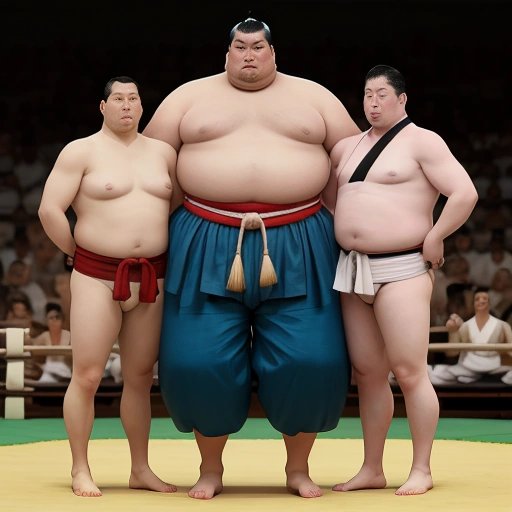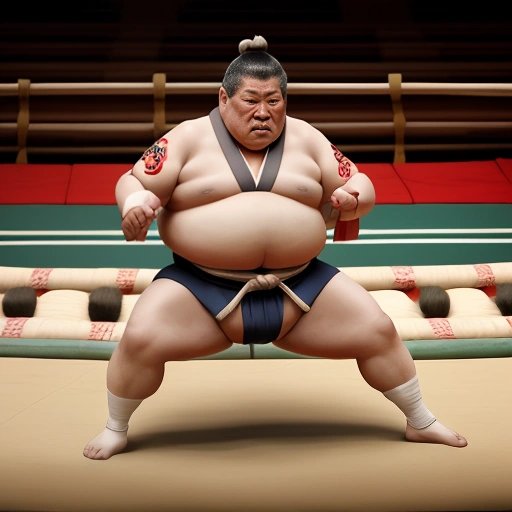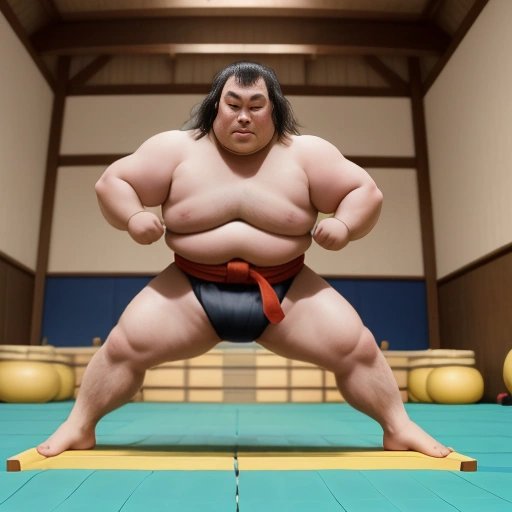In the heart of Tokyo, within the sumo stables of Japan, is the home of one of the world's most compelling sumo wrestlers - Tiny Tim (not his original Japanese name but an appellation given by the Western media, clearly inspired by the Charles Dickens character due to his rather minuscule stature). A dispute that has ensnared the sumo wrestling community recently centres around this featherweight sumo wrestler who's challenging the very foundations of the sport's weight categories.
For decades, the sumo wrestling world has categorised its wrestlers by weight, segregating them into distinct divisions. The heavier the wrestlers, the higher the division they typically compete in. But one wrestler has knocked the proverbial tradition out of the ring.
The spotlight falls on Tiny Tim, the first sumo wrestler in history to weigh in at a surprisingly slight 60 kilograms (132 pounds), less than half the typical weight of most of his competitors.
Tiny Tim, named after the frail fictional character in Charles Dickens' 'A Christmas Carol,' has presented an unprecedented demand that sumo tournament officials include gravity as an additional factor into their weight categories.
Tim's argument is as ground-breaking as it is enthralling. A wrestler's weight, he contends, is not merely a matter of content mass but how said mass interacts with the immutable law of gravity. What does this mean? Essentially, according to Tim's theory, although his apparent weight is lesser, the gravitational effect on his body is the same as that experienced by his heavier opponents.
Tim and his forward-thinking team of physicists use a simple example to illustrate their argument: "If you compare a feather and a stone falling in a vacuum, they both fall at the same speed." Tiny Tim states, "Gravity affects me the same as it does my opponents. My stomach may not protrude as much, but my gravitas inside the ring is what truly matters."
Still, detractors argue that this is a ridiculous claim. "If we started factoring in every possible variable, such as how many bowls of Chanko nabe a wrestler eats or what astrology sign they were born under, we'd be mired in a whirlpool of variables," states Sumo Elder, Jiro Tanaka.
So, where does this leave sumo wrestling, and more importantly, our prodigious lightweight, Tiny Tim?
The Japan Sumo Association (JSA) is currently grappling with the question. It's no small conundrum. If they take Tiny Tim's argument seriously, this contentious issue might just threaten to upend the age-old traditions and ranking system of sumo.
As novel as Tim's debate may be, it has generated a wave of attention and a flurry of discussion. It has become the talk of Tokyo, with sports enthusiasts, physics aficionados, weight-watchers and even casual observers pondering over the gravity of Tim's argument. Could this be the moment sumo wrestling fundamentally rethinks its weight classification system?
While the JSA deliberates and Tokyo buzzes with excitement, Tim continues to train, demonstrating to the world that while he might be short on kilograms, he's full of spirit. He harbours no illusion of simple victory. Instead, he embraces the notion that sumo is a sport of paradoxes—where strength meets strategy, tradition challenges innovation and gravity... well, gravity is just a theory waiting to be wrestled with.
In the end, Tiny Tim's bone of contention might be too hefty for the traditionalist JSA to lift. But one thing is clear: Tim is not about to be deterred by the weight of tradition. Whether he's weighed down by gravity or weighed in by indifference, he's steadfast in his belief in the sport he loves, determined to carve out his own path in the sumo wrestling world.


